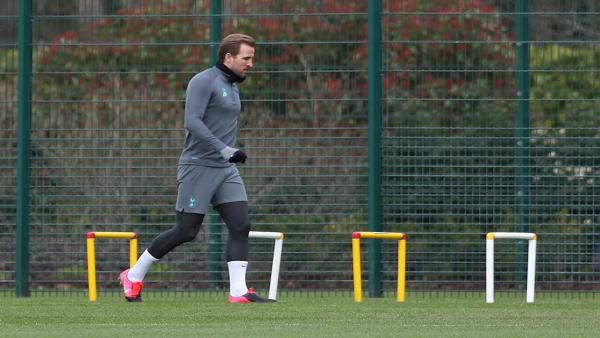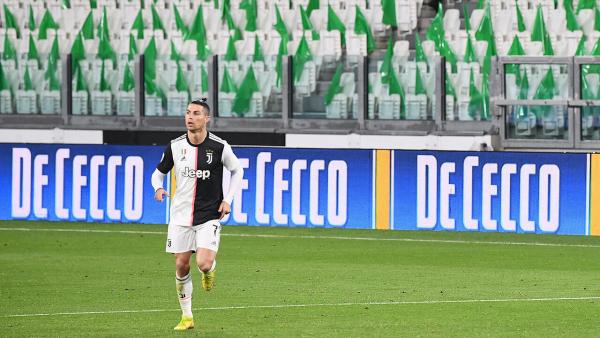After 100 days on hiatus the Premier League returns on June 17, looking very different from the competition placed on lock down by the coronavirus pandemic. Games will be played in empty stadiums. Five substitutes will be permitted. Players will be encouraged to turn away when tackled and instructed not to celebrate in close proximity to a team-mate. It’s football, Jim, just not as we know it.
It follows therefore that this ‘new normal’ necessitates a rethink into how we approach our betting, with factors that simply didn’t exist back in March now requiring serous thought and no little guesswork as the remaining 92 fixtures of the season are played out across a hectic five weeks.
It used to be that studying recent form was often sufficient in finding value. Those were simpler times.
Behind closed doors
Much has been made of the fact that football’s resumption in Germany has seen home sides lose their traditional advantage and with the same leveling of the playing field also evident in Estonia and Czech Republic it’s fair to assume this trend will be replicated in England.
Prior to the Bundesliga’s postponement home teams emerged victorious 43.3% of the time in 2019/20. Since its return behind closed doors that has plummeted to 21.7%.
Such a startling decline is worthy of note and when projected onto the Premier League it especially becomes a concern for teams battling against relegation. Usually those struggling near the bottom can rely on the ferocity of their home support to inspire them to three precious points as the trap-door widens. Now games have been reduced to two teams playing on lush turf in relative silence and almost inevitably quality will win out.
Of the sides in peril it is Aston Villa who should most be alarmed by the developments abroad and most have reason to curse their ill-fortune at missing out on being lifted by thousands of charged supporters. Six of their remaining nine games are at home and pertinently five are against teams challenging for a Champions League spot.
Additionally, there is a further point to consider.
Before football wrapped itself in cotton wool we were already witnessing a higher volume of away successes with last season’s average of 26.3% shooting up to 30.1% from August until March.
The Villans are 4/11 to drop by the season’s end.
Salah misses his stage
If teams will no longer benefit from the familiarity and inspiration of home comforts the same can be said of strikers. Or at least one of them.
The race to snag this season’s Golden Boot award presently has Jamie Vardy in pole position having scored two more than his nearest contender and should the Foxes’ front-man continue to regularly find the net he will become the oldest player to ever attain the honour.
It also reflects well on the Leicester man that he has divvied up his goals home and away with ten of his 19 executed at the King Power and nine elsewhere.
Close on his heels, Arsenal’s Pierre-Emerick Aubameyang has gone one better in that regard, notching one more goal on his travels than scored at the Emirates while Sergio Aguero clearly doesn’t care where he breaks keepers’ spirits. His 16-goal tally is evenly split between Manchester and across the country.
This egalitarian approach to scoring alas is not shared by Mohamed Salah. Currently joint third on the list the Egyptian hit-man has only found the target twice away from Anfield this season and a suggestion can reasonably be made that from this prolific group it is he who most thrives off a heightened atmosphere that will now be absent.
A second bite at the cherry
The enforced lay-off has been calamitous for every club, large or small, but if there is one slight upside to be found it’s in the opportunity to get key injured players back on the pitch who were initially slated to return next term.
For Manchester United it is an enormous fillip to have Marcus Rashford available once again up front. Prior to his back injury sustained in January the forward was mining a rich vein of form, averaging a goal every 124 minutes. It will also be a huge boon to see Paul Pogba return to action and Reds will be keenly anticipating his linking up in the attacking third with Bruno Fernandes.
Down near the foot of the table Aston Villa have been boosted by the sight of John McGinn resuming full training, free from the ankle problem that jeopardized his campaign. The Scot is an integral component in Villa’s midfield and furthermore his return places less emphasis on Jack Grealish to run the show single-handedly.
Similarly, Bournemouth will be delighted to have playmaker David Brooks in their line-up after a year-long absence. The ability to create something from nothing becomes a priceless commodity when top-flight survival is on the line.
Perhaps most notably of all, Harry Kane’s recent declaration of fitness is highly significant for Spurs and their top four fight. Before he succumbed to a hamstring set-back Tottenham were averaging 1.6 goals per game. Without him that dropped to 1.3.

From boos to boost
If the availability of previously injured players is a factor in this new and alien landscape then the same applies to those enduring other issues aside from the physical.
Think of that player in your team. We all have one. The guy stripped of confidence whose poor displays in part one of this season only led to a further lack of conviction. At times he looked a mere shadow of his former self.
Now though, free from hearing loud grumbles at their every mistake we might see perceived ‘flops’ rediscover their form and even flourish in the quiet environs of the new normal.
Think of John Stones at Manchester City or Michael Keane at Everton strolling out from the ball minus the unmistakable frisson of fear emanating from fans.
Think of Pablo Fornals at West Ham or Douglas Luiz at Aston Villa hearing only encouragement from their team-mates should they lose possession.
What is about to commence is a whole new ball game. For some it will be a better one.
All change at the top
It remains to be seen how the introduction of five substitutes will have an impact on results but two logical conclusions can be drawn.
Firstly, managers who have an elite skill-set in changing the course of games via switches in personnel will be relishing the extra strings to their bow.
Then there is the undeniable fact that the bigger teams now boast an even greater advantage due to possessing deeper squads.
Staying with these truths leads us to the scrap at the top for Champions League qualification and two coaches in Brendan Rodgers and Nuno Espirito Santo who have an impressive track record at altering a game’s dynamic. This season Leicester have scored 62% of their goals during the second half while Wolves have found the net a staggering 29 times late on.
It can be expected that these two – over their rivals – will use their broader options to good effect.
Source: Betfair Premier League




